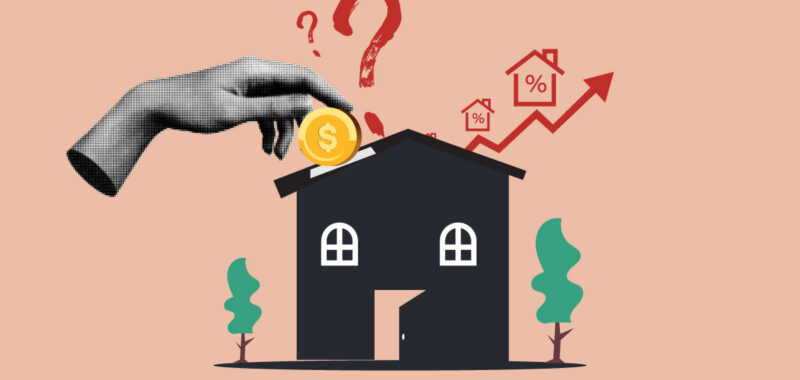Rapid changes in mortgage rates have left many would-be homebuyers asking: Is now a good time to buy? Will prices go up or down? Will mortgage rates and affordability improve or get worse?
There is no “perfect” time to buy, of course. But there are specific factors homebuyers should weigh as they determine their timing.
Patricia Maguire-Feltch, managing director of consumer origination sales at Chase Home Lending, says that realistic evaluation is key when making the big step to buy. “The home-buying process can be overwhelming and the main barrier for many is a lack of knowledge on the process…[but] while the market may seem daunting right now, it may still be the right time for buyers who are well-prepared financially to take on homeownership,” she said. “Prospective buyers who have experienced income loss or a change in financial status recently may need to reevaluate their financial readiness for homeownership.”
Of course, whether buying a home is a good decision right now varies a great deal on location. Nationally, home prices will finish 2024 up 5% over the previous year, says Altos Research Founder Mike Simonsen. The number of homes being sold is historically low this year and with 27% more homes unsold on the market than there were last year and a slight increase on the price tag, buyers who jump in now have more choices.
In HousingWire’s 2025 housing market forecast, Lead Analyst Logan Mohtashami and Simonsen anticipate mortgage rates staying in a range between 5.75% and 7.25% next year.
This range is in line with most other housing forecasts. Redfin economists expect mortgage rates to stabilize around 7%. So, while rates aren’t dipping to the 3% lows seen during pandemic years, rates have not taken off in the other direction, either. Just last fall mortgage rates reached 8%.
Orphe Divounguy, a senior economist at Zillow, said he expects rates to ease rather than rise. “Affordability will remain a challenge, but signs point to improvement. More homes for sale, stable rent growth, higher real incomes and mortgage rates that are more likely to ease than to rise from here all bode well for potential first-time homebuyers,” he said.
Divounguy also said that easing rates will likely prompt activity. “While more Fed rate cuts are expected, there is no guarantee mortgage rates will fall, and even if they do, the path will likely be bumpy. In the periods when mortgage rates are low, expect more activity,” he said.
Maguire-Feltch points out the positives. “Even though the mortgage-rate environment has been volatile the past few weeks, we are seeing more optimism around the mortgage market, especially in isolated incidents like when the Fed announces a rate cut,” she said. “If we see any additional cuts throughout the next year, they are likely to be slow and gradual. The economy is doing well, and a strong economy is great for housing recovery and stability.”
Prospective buyers hoping for a better deal can’t outrun prices, data suggests. The Federal Reserve Bank of St. Louis’ Federal Reserve Economic Data (FRED) shows that in October 2024, the median sales price of houses sold in the United States sat at $420,400.
While that figure seems daunting, median sale prices were higher in 2022 ($442,600) and 2023 ($423,200). Current prices aren’t too far off from home prices in 2021, which were $414,000. And while prices have come down a bit, there’s no big drop coming in national home prices.
The narrative associated with buying is that many borrowers are on the sidelines, and those who bought during the 3% pandemic boom are savoring their low rates — and in no hurry to move. “Roughly 70% of mortgage debt is currently below a 5% interest rate. If rates continue to decline, we’ll likely see the lock-in effect soften, and consumers will be more willing to purchase a home and take on a higher rate than they currently have,” Maguire-Feltch said.
Renters looking to move?
As home prices continue to rise, the number of renter households has surged, outpacing the growth of homeowners in the U.S. with a record 45.6 million renters, That number is up 2.7% year over year, according to Redfin.
Stabilizing rent growth is helping current renters who would like to buy save for a downpayment. Redfin’s latest rental measures saw the median U.S. asking rent barely budge in October. CoreLogic reported that single-family rental (SFR) prices only grew 2% year-over-year as of September 2024, marking the lowest annual growth rate in over four years. Rent growth remains well below the pre-pandemic average of 3.5%.

